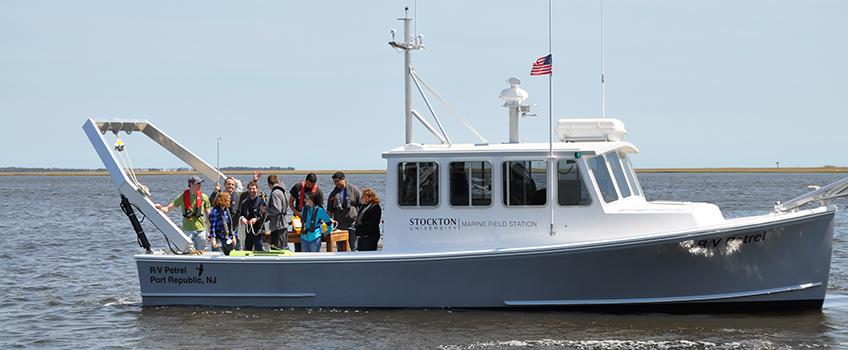Study Supports Coastal Resiliency Institute

The study says Gardner's Basin offers the best site for the institute and would help promote a 'blue economy' in the area.
Galloway, N.J. – Stockton University will move forward to develop partnerships and funding for a Coastal Resiliency Institute and Marine Science Center (CRI/MSC) in Atlantic City.
A recently completed feasibility study commissioned by the university recommended locating the institute in Absecon Inlet, specifically the Gardner’s Basin area.
The study said the center could serve as a nexus for the development of a “blue economy” in the region. It cited the site’s access to the ocean, deep-water marina facilities, and direct access to surrounding waterways, dunes, beaches, wetlands and urbanized coast necessary for teaching and research.
The study makes three recommendations:
- Contribute to ongoing initiatives to explore development opportunities in Atlantic City, specifically in the Absecon Inlet region, including Gardner’s Basin.
- Establish an interim or immediate oceanic outpost at Gardner's Basin.
- Identify opportunities for research, education and workforce development.
The study was done by a committee formed last summer by Stockton President Harvey Kesselman. The committee’s work is a continuation of a 2019 report recommending such an institute, which was funded by an Innovation Challenge grant to Atlantic City by the New Jersey Economic Development Authority (NJEDA). This new study was made possible by the generous support of former Senator Willian L. Gormley and Lee A. Levine.
President Kesselman said the institute would provide more opportunities for research crucial to the future of the entire Jersey Shore and its economy and expand Stockton’s commitment as a state-designated anchor institution in Atlantic City. It would also help diversify the Atlantic City economy and create a new image for the city as a leader in environmental issues as well as entertainment and gaming.
“We all recognize that we need to be prepared for the impact of climate change,” Kesselman said. “This center can expand on the crucial work of Stockton’s Coastal Research Center and Marine Field Station, providing research and educating the public and the next generation of marine scientists. Stockton has been a leader in this area for decades and Atlantic City, as an economic driver for the city and the state, can and should be the location for this institute.”
The study says global climate change and associated sea level rise, coupled with regional development of offshore alternate (wind) energy, make it essential that the resilience of New Jersey’s coastal communities be the focus of efforts to study and plan for the health of these important drivers of the shore economy, the coastal ocean, the barrier islands and surrounding coastal ecosystems.
The study notes that the inlet region would provide synergies with the “blue economy,” including alternate energy and commercial fishing industries as well as tourism and other development opportunities.
No specific timeline has been established. Kesselman said time is of the essence and he will be actively looking for public and private partners and supporters at the local, state and national level. Dredging of portions of the Absecon Inlet region will be necessary to provide appropriate access for vessels to the Gardner’s Basin area.
“This is too important not to do,” Kesselman said. “We will figure out a way, but we cannot do it alone.”
# # #
Contact:
Diane D’Amico
Director of News and Media Relations
Galloway, N.J. 08205
Diane.DAmico@stockton.edu
609-652-4593
609-412-8069
stockton.edu/media


